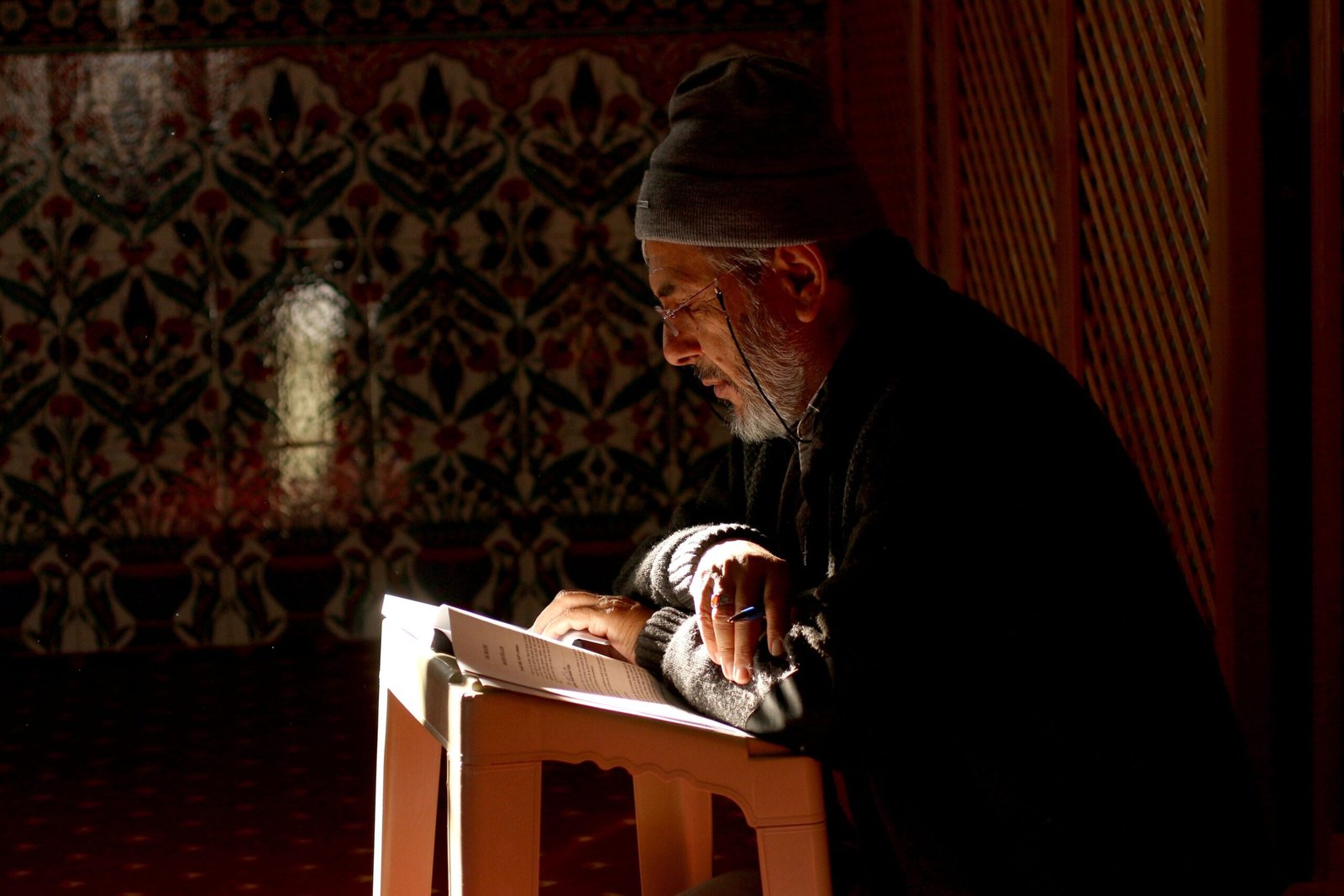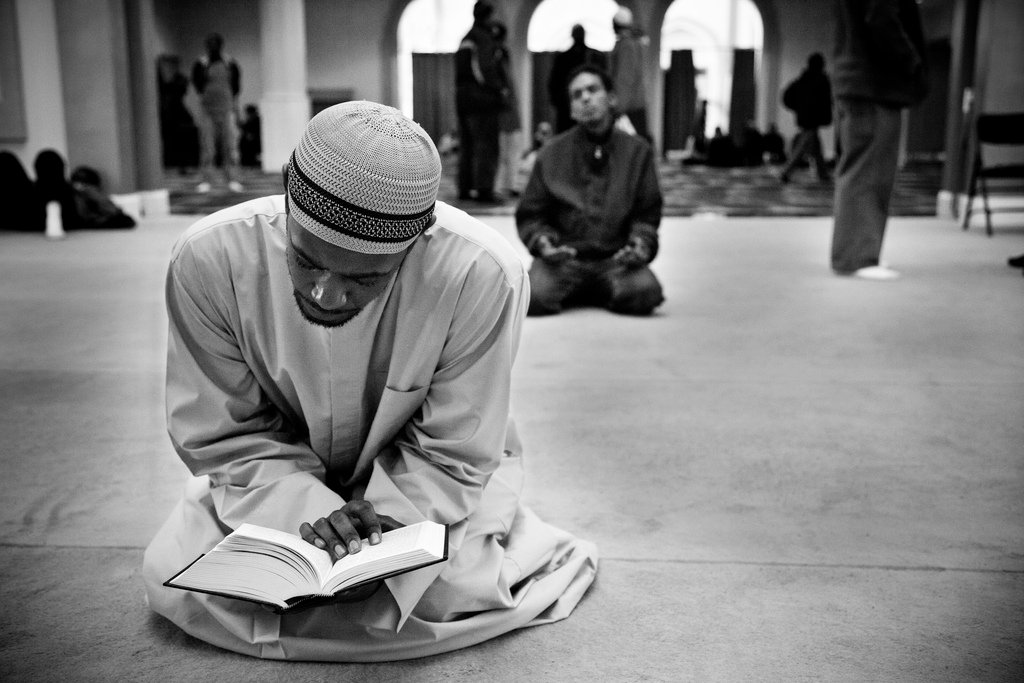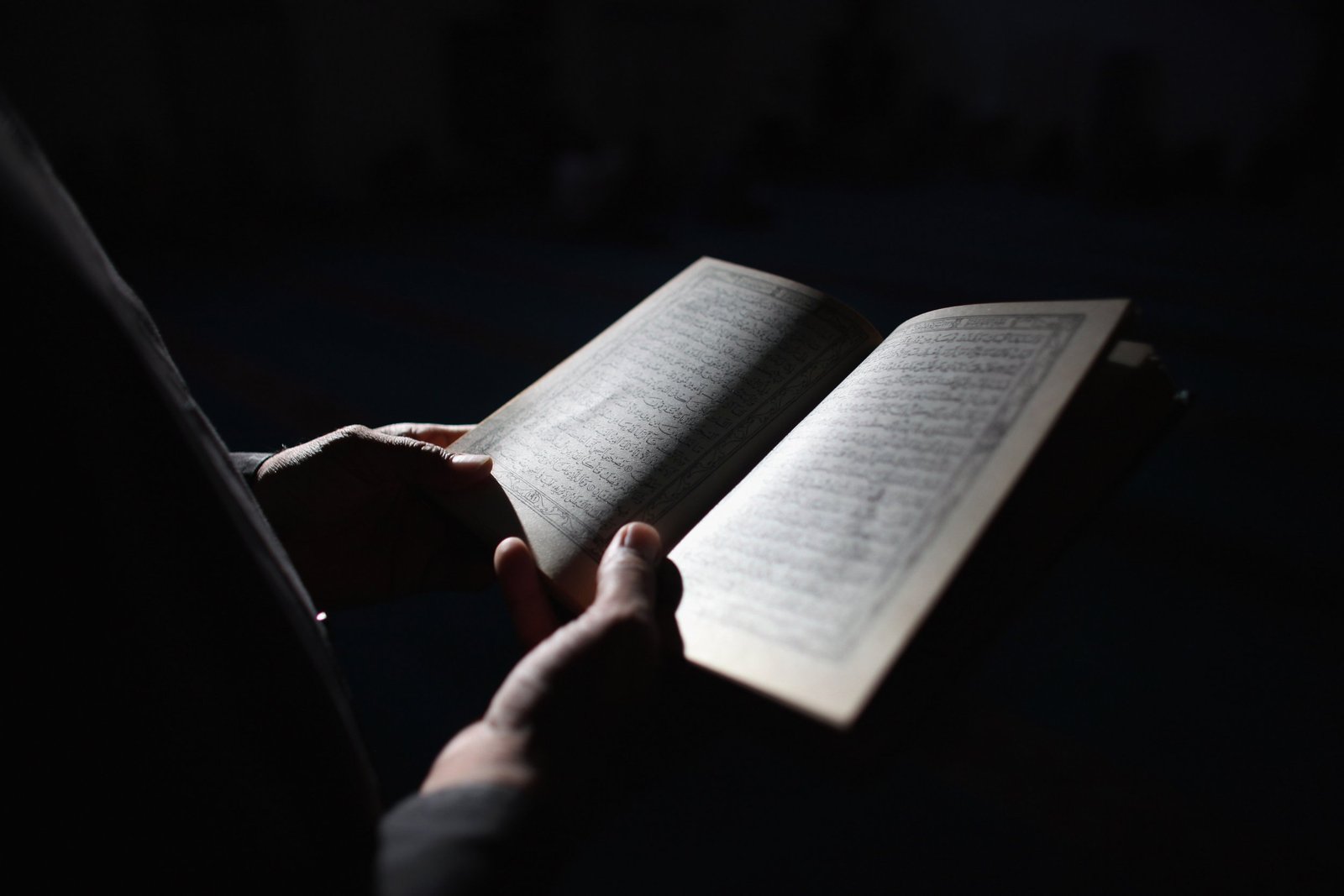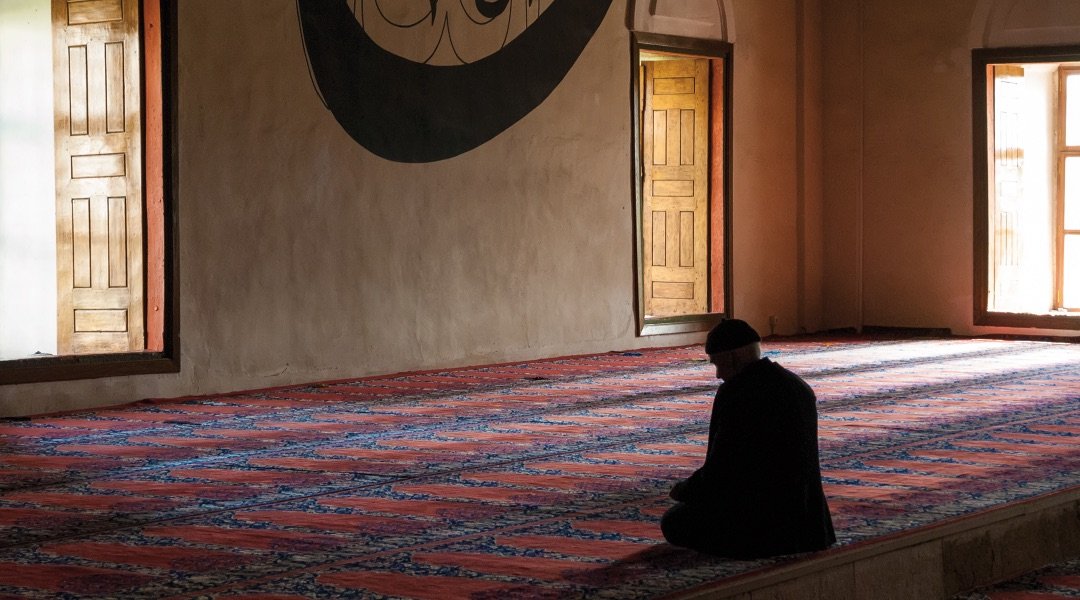One of the important issues that Islam has discussed and cared about the issue of injustice and supporting the oppressed. Allah commands the implementation of justice and adherence to His orders while prohibiting all forms of injustice. This is also evident in the biography of the Prophet Muhammad (peace be upon him). In a hadith about speaking against injustice: there is a clear prohibition against oppressing others. The Prophet said, “Beware of injustice, for injustice will be darkness on the Day of Judgment.” In the following lines, we will discuss the issue of injustice in Islam in detail.
Powerful hadith about speaking against injustice

Allah the Almighty has forbidden oppression, and a collection of hadiths emphasize the prohibition of oppression. Among these hadiths is this hadith about speaking against injustice where the Prophet (peace be upon him) narrates from Allah:
“O My servants, I have forbidden oppression for Myself and have made it forbidden among you, so do not oppress one another. O My servants, all of you are astray except those whom I have guided, so seek guidance from Me and I shall guide you. O My servants, all of you are hungry except those whom I have fed, so seek food from Me and I shall feed you. O My servants, all of you are naked except those whom I have clothed, so seek clothing from Me and I shall clothe you. O My servants, you sin by night and by day, and I forgive all sins, so seek forgiveness from Me and I shall forgive you. O My servants, you will not attain harming Me so as to harm Me, and you will not attain benefiting Me so as to benefit Me. O My servants, if the first of you and the last of you, and the humans of you and the jinn of you, were all as pious as the most pious heart of any one man of you, that would not increase My kingdom in anything. O My servants, if the first of you and the last of you, and the humans of you and the jinn of you, were all as wicked as the most wicked heart of any one man of you, that would not decrease My kingdom in anything. O My servants, if the first of you and the last of you, and the humans of you and the jinn of you, were to stand in one place and make a request of Me, and I were to give everyone what he requested, that would not decrease what I have, any more than a needle decreases the sea if put into it. O My servants, it is but your deeds that I account for you and then recompense you for. So, he who finds good, let him praise Allah, and he who finds other than that, let him blame no one but himself.”
BOOK FREE SESSION
حديث النَّبيّ -عليه الصَّلاة والسَّلام- فيما يرويه عن الله عزَّ وجلَّ: (يا عبادي إنِّي حرَّمتُ الظلمَ على نفسي وجعلتُه بينكم محرَّمًا، فلا تظَّالموا، يا عبادي كلكم ضالٌّ إلا من هديتُه، فاستهدوني أَهْدِكم، يا عبادي كلكم جائعٌ إلا من أطعمتُه، فاستطعموني أُطعمكم، يا عبادي كلكم عارٍ إلا من كسوتُه، فاستكسوني أكْسُكُم، يا عبادي إنَّكم تُخطئون بالليلِ والنَّهارِ، وأنا أغفرُ الذنوبَ جميعًا، فاستغفروني أغفرُ لكم، يا عبادي إنَّكم لن تبلغوا ضُرِّي فتضروني، ولن تبلغوا نفعي فتنفَعوني، يا عبادي لو أنَّ أوَّلكم وآخركم وإِنْسَكم وجِنَّكم، كانوا على أتقى قلبِ رجلِ واحدٍ منكم، ما زاد ذلك في ملكي شيئًا، يا عبادي لو أنَّ أوَّلَكم وآخركم وإنْسَكم وجِنَّكم كانوا على أفجرِ قلبِ رجلٍ واحدٍ ما نقص ذلك من ملكي شيئًا، يا عبادي لو أنَّ أوَّلَكم وآخرَكم وإنسَكم وجِنَّكم، قاموا في صعيدٍ واحدٍ فسألوني، فأعطيتُ كل إنسانٍ مسألتَه، ما نقص ذلك مما عندي إلا كما ينقصُ المِخْيَطُ إذا أُدْخِلَ البحرَ، يا عبادي إنَّما هي أعمالكم أُحصيها لكم ثمَّ أوفِّيكم إياها، فمن وجد خيرًا فليحمدِ اللهَ، ومن وجد غيرَ ذلك فلا يلومَنَّ إلا نفسَه).
Read about:
Hadith about speaking against injustice
This hadith about speaking against injustice (hadith qudsi), it speaks about the severity of committing oppression, stating that it is a forbidden act. Allah has forbidden it upon Himself and has emphasized the grave punishment for His servants who oppress one another. It is a clear prohibition from Allah the Almighty, and it must be adhered to.
In another hadith about speaking against injustice Abu Bakr reported: The Messenger of Allah, peace and blessings be upon him, said, “Verily, if people see an oppressor and they do not seize his hand, Allah will soon send His punishment upon all of them.”
عَنْ أَبِي بَكْرٍ الصِّدِّيقِ قَالَ قَالَ رَسُولُ اللَّهِ صَلَّى اللَّهُ عَلَيْهِ وَسَلَّمَ إِنَّ النَّاسَ إِذَا رَأَوْا الظَّالِمَ فَلَمْ يَأْخُذُوا عَلَى يَدَيْهِ أَوْشَكَ أَنْ يَعُمَّهُمُ اللَّهُ بِعِقَابٍ مِنْهُ
The Prophet (peace and blessings be upon him) said in ahadith about speaking against injustice: “Allah said: ‘There are three whom I will oppose on the Day of Resurrection: a man who gives his word by Me and then betrays; a man who sells a free person and consumes the price; and a man who hires a worker and receives the full work but does not pay him his wages.'”
عن النَّبي -عليه الصَّلاة والسَّلام- قال: (قال اللهُ: ثلاثةٌ أنا خصمهم يومَ القيامةِ: رجلٌ أعطى بي ثم غدرَ، ورجلٌ باع حرًّا فأكل ثمنَه، ورجلٌ استأجرَ أجيرًا فاستوفى منهُ ولم يُعْطِه أجرَه).
The Prophet (peace and blessings be upon him) said in hadith about speaking against injustice: “Beware of oppression, for oppression will be darkness on the Day of Resurrection. And beware of stinginess, for stinginess destroyed those who were before you; it led them to shed each other’s blood and to make lawful what was forbidden for them.”
-قال صلى الله عليه وسلم : (اتَّقوا الظُّلمَ، فإنَّ الظُّلمَ ظلماتٌ يومَ القيامةِ، واتَّقوا الشُّحَّ فإنَّ الشُّحَّ أهلك من كان قبلكم، حملهم على أن سفكوا دماءَهم واستحلُّوا محارمَهم).
Read about: hadith on poverty and kufr
Hadith about stopping oppression

Here are a few examples of hadiths that prohibit injustice among Muslims, where Allah has forbidden oppression and declared it unlawful upon Himself. The life of Prophet Muhammad (peace be upon him) is filled with many such hadiths that prohibit injustice.
BOOK FREE SESSION
in hadith about speaking against injustice, Anas ibn Malik reported: The Prophet (ﷺ) said, “Beware of the supplication of the oppressed, even if he is an unbeliever, for there is no barrier between it and Allah.”
-في رواية أنس بن مالك عنه -عليه الصلَّاة والسَّلام- أنَّه قال: (اتَّقوا دعوةَ المظلومِ، و إن كان كافرًا، فإنه ليس دونها حجابٌ
Another hadith about speaking against injustice Abu Bakr reported: The Messenger of Allah (ﷺ) said, “Two matters hasten their recipient to punishment in this world: oppression and disobedience to parents.”
– عن أبي بكر قال رسول الله صلى الله عليه وسلم : (اثنتان يعجلهما الله في الدنيا : البغي وعقوق الوالدين )
In hadith about speaking against injustice, Anas reported: The Messenger of Allah (ﷺ) said, “There are two doors among the doors of Hell specially reserved for those who commit oppression and those who sever family ties.”
-عن أنس رضي الله عنه قال رسول الله صلى الله عليه وسلم : ” بابان معجلان عقوبتهما في الدنيا : البغي، والعقوق”.
In hadith about speaking against injusticeThe Prophet (ﷺ) said, “Support your brother whether he is an oppressor or oppressed.” A man asked, “O Messenger of Allah, I understand how to support him if he is oppressed, but how should I support him if he is an oppressor?” The Prophet said, “By preventing him from oppressing others, for that is how you support him.”
-قوله -عليه الصَّلاة والسَّلام- : (انصر أخاك ظالمًا أو مظلومًا، فقال رجلٌ: يا رسولَ اللهِ، أنصرُه إذا كان مظلومًا، أفرأيتَ إذا كان ظالمًا كيف أنصرُه ؟ قال: تحجِزُه، أو تمنعُه من الظلمِ فإنَّ ذلك نصرُه)
In hadith about speaking against injustice, Abu Huraira reported: The Prophet (ﷺ) said, “Do you know who is bankrupt?” They said, “The bankrupt among us is one who has neither money nor property.” The Prophet said, “The bankrupt of my nation would be he who comes on the Day of Resurrection with prayers, fasting, and charity, but he also comes having insulted this person, slandered that person, wrongfully taken the wealth of another, shed the blood of another, and beaten another. So his virtues will be given to those whom he wronged. If his good deeds run out before he settles his account, their sins will be taken from them and placed on him, and then he will be thrown into the Hellfire.”
رواه أبو هريرة -رضي الله عنه- أنَّ النَّبيّ -عليه الصَّلاة والسَّلام- قال: ( أتدرون ما المفلِسُ؟ قالوا: المفلِسُ فينا من لا درهمَ له ولا متاعَ فقال: إنَّ المفلسَ من أمَّتي، يأتي يومَ القيامةِ بصلاةٍ وصيامٍ وزكاةٍ ، ويأتي قد شتم هذا، وقذف هذا، وأكل مالَ هذا، وسفك دمَ هذا، وضرب هذا فيُعطَى هذا من حسناتِه وهذا من حسناتِه، فإن فَنِيَتْ حسناتُه قبل أن يقضيَ ما عليه، أخذ من خطاياهم فطُرِحت عليه ثمَّ طُرِح في النَّارِ)
In hadith about speaking against injustice The Messenger of Allah (ﷺ) said, “Three persons whose supplication is never rejected are: the fasting person until he breaks his fast, the just ruler, and the supplication of the oppressed which is raised by Allah above the clouds, and the gates of heaven are opened for it. And the Lord says, ‘By My might, I will surely aid you, even if it should be after a while.'”
-قال رسول الله صلى الله عليه وسلم”ثلاثةٌ لا تُرَدُّ دعوتُهم: الإمامُ العادلُ، والصَّائمُ حينَ يُفطِرُ، ودعوةُ المظلومِ تُحمَلُ على الغَمامِ، وتُفتَحُ لها أبوابُ السَّمواتِ، ويقولُ الرَّبُّ: وعِزَّتي لَأنصُرَنَّكِ ولو بعدَ حينٍ”.
In hadith about speaking against injustice, The Prophet (ﷺ) said, “Do not envy one another, do not inflate prices against one another, do not hate one another, do not turn away from one another, and do not undercut one another in trade. Be servants of Allah, brothers. A Muslim is the brother of a Muslim. He does not wrong him, betray him, or look down upon him. Taqwa (piety) is here (pointing to his chest) three times. It is enough evil for a person to look down upon his brother Muslim. All of a Muslim is inviolable to another Muslim: his blood, his wealth, and his honor.”
-قال رسول الله صلى الله عليه وسلم “لا تَحاسَدُوا، ولا تَناجَشُوا، ولا تَباغَضُوا، ولا تَدابَرُوا، ولا يَبِعْ بَعْضُكُمْ علَى بَيْعِ بَعْضٍ، وكُونُوا عِبادَ اللهِ إخْوانًا المُسْلِمُ أخُو المُسْلِمِ، لا يَظْلِمُهُ ولا يَخْذُلُهُ، ولا يَحْقِرُهُ التَّقْوَى هاهُنا ويُشِيرُ إلى صَدْرِهِ ثَلاثَ مَرَّاتٍ بحَسْبِ امْرِئٍ مِنَ الشَّرِّ أنْ يَحْقِرَ أخاهُ المُسْلِمَ، كُلُّ المُسْلِمِ علَى المُسْلِمِ حَرامٌ، دَمُهُ، ومالُهُ، وعِرْضُهُ”.
In hadith about speaking against injustice, The Messenger of Allah (ﷺ) said, “Verily, Allah gives respite to the oppressor until, when He seizes him, He does not let him escape. Then He recited: ‘Such is the seizure of your Lord when He seizes the cities while they are committing wrong. Indeed, His seizure is painful and severe.'”
-قال رسول الله صلى الله عليه وسلم “إنَّ اللَّهَ لَيُمْلِي لِلظّالِمِ حتَّى إذا أخَذَهُ لَمْ يُفْلِتْهُ قالَ: ثُمَّ قَرَأَ: ” وَكَذلكَ أخْذُ رَبِّكَ إذا أخَذَ القُرَى وهي ظالِمَةٌ إنَّ أخْذَهُ ألِيمٌ شَدِيد”.
What does Allah say about injustice?

Many Quranic verses prohibit and warn against injustice. As mentioned in ahadith about speaking against injustice, Allah Himself forbids injustice. Among these verses are those that illustrate the severity of the punishment for injustice and emphasize its prohibition.
“And never think that Allah is unaware of what the wrongdoers do. He only delays them for a Day when eyes will stare [in horror]. Racing ahead, their heads raised up, their glance does not come back to them, and their hearts are void.” Surah Ibrahim (14:42-43)
“وَلَا تَحْسَبَنَّ اللَّـهَ غَافِلًا عَمَّا يَعْمَلُ الظَّالِمُونَ ۚ إِنَّمَا يُؤَخِّرُهُمْ لِيَوْمٍ تَشْخَصُ فِيهِ الْأَبْصَارُ مُهْطِعِينَ مُقْنِعِي رُءُوسِهِمْ لَا يَرْتَدُّ إِلَيْهِمْ طَرْفُهُمْ وَأَفْئِدَتُهُمْ هَوَاءٌ”
“Indeed, Allah does not wrong the people at all, but it is the people who are wronging themselves.” Surah Yunus (10:44)
“إِنَّ اللَّـهَ لَا يَظْلِمُ النَّاسَ شَيْئًا وَلـٰكِنَّ النَّاسَ أَنفُسَهُمْ يَظْلِمُونَ”
“Indeed, those who disbelieve and commit wrong [or injustice]—never will Allah forgive them, nor will He guide them to a path.” Surah An-Nisa (4:168)
“إِنَّ الَّذِينَ كَفَرُوا وَظَلَمُوا لَمْ يَكُنِ اللَّـهُ لِيَغْفِرَ لَهُمْ وَلَا لِيَهْدِيَهُمْ طَرِيقًا”
“Allah does not like the public mention of evil except by one who has been wronged. And ever is Allah Hearing and Knowing.” Surah An-Nisa (4:148)
“لَا يُحِبُّ اللَّـهُ الْجَهْرَ بِالسُّوءِ مِنَ الْقَوْلِ إِلَّا مَن ظُلِمَ ۚ وَكَانَ اللَّـهُ سَمِيعًا عَلِيمًا”
“And those cities—We destroyed them when they wronged, and We made for their destruction an appointed time.” Surah Al-Kahf (18:59)
“وَتِلْكَ الْقُرَىٰ أَهْلَكْنَاهُمْ لَمَّا ظَلَمُوا وَجَعَلْنَا لِمَهْلِكِهِم مَوْعِدًا
“And We had already destroyed generations before you when they wronged, and their messengers had come to them with clear proofs, but they were not to believe. Thus do We recompense the criminal people.” Surah Yunus (10:13)
“وَلَقَدْ أَهْلَكْنَا الْقُرُونَ مِن قَبْلِكُمْ لَمَّا ظَلَمُوا ۚ وَجَاءَتْهُمْ رُسُلُهُم بِالْبَيِّنَاتِ وَمَا كَانُوا لِيُؤْمِنُوا ۚ كَذَٰلِكَ نَجْزِي الْقَوْمَ الْمُجْرِمِينَ”
“And We will set up scales of justice on the Day of Resurrection, so no soul will be treated unjustly at all. And if there is [even] the weight of a mustard seed, We will bring it forth. Sufficient are We as accountant.” – Surah Al-Anbiya (21:47)
” وَنَضَعُ المَوازينَ القِسطَ لِيَومِ القِيامَةِ فَلا تُظلَمُ نَفسٌ شَيئًا وَإِن كانَ مِثقالَ حَبَّةٍ مِن خَردَلٍ أَتَينا بِها وَكَفى بِنا حاسِبينَ”.
BOOK FREE SESSION
Examples of injustice in Islam
The Prophet (peace be upon him) said in hadith about speaking against injustice and explained the types of injustice. it is of three types: an injustice that Allah does not forgive, an injustice that He forgives, and an injustice that He does not overlook. As for the injustice that Allah does not forgive, it is associating partners with Him (شرك). Allah says: ‘Indeed, associating partners with Allah is a great injustice (ظلم)’ (Quran 31:13). As for the injustice that He forgives, it is the injustice that the servants commit against themselves in matters between them and their Lord. And as for the injustice that He does not overlook, it is the injustice of the servants towards one another.”
-قال رسول الله – صلى الله عليه وسلم : ” الظلم ثلاثة : فظلم لا يغفره الله، وظلم يغفره، وظلم لا يتركه فأما الظلم الذي لا يغفره الله : فالشرك ، وقال الله “إن الشرك لظلم عظيم”، وأما الظلم الذي يغفره : فظلم العباد أنفسهم فيما بينهم وبين ربهم، وأما الظلم الذي لا يتركه : فظلم العباد بعضهم بعضا “،
Punishment of injustice in Islam according to Hadith About Speaking Against Injustice

Islam strongly warns against injustice and elucidates its severe consequences for the wrongdoer in both this life and the Hereafter. This includes incurring the anger of Allah, facing various forms of punishment, being deprived of the intercession of the Prophet Muhammad (peace be upon him) on the Day of Judgment, resulting in humiliation before Allah, and losing the blessings once enjoyed. As mentioned by the Prophet (peace be upon him) in his hadith against injustice, numerous Quranic verses illustrate the fate of unjust nations and individuals on Earth.
“Has there not reached them the news of those before them—the people of Noah, ‘Aad, Thamud, the people of Abraham, the companions of Madyan, and the overturned cities? Their messengers came to them with clear proofs. And Allah would never have wronged them, but they were wronging themselves.” Surah Ibrahim (14:42-43)
“أَلَم يَأتِهِم نَبَأُ الَّذينَ مِن قَبلِهِم قَومِ نوحٍ وَعادٍ وَثَمودَ وَقَومِ إِبراهيمَ وَأَصحابِ مَديَنَ وَالمُؤتَفِكاتِ أَتَتهُم رُسُلُهُم بِالبَيِّناتِ فَما كانَ اللَّـهُ لِيَظلِمَهُم وَلـكِن كانوا أَنفُسَهُم يَظلِمونَ”.
“And those cities—We destroyed them when they wronged, and We made for their destruction an appointed time.” Surah Al-Ankabut (29:40)
“وَتِلكَ القُرى أَهلَكناهُم لَمّا ظَلَموا وَجَعَلنا لِمَهلِكِهِم مَوعِدًا”.
“And We had already destroyed generations before you when they wronged, and their messengers had come to them with clear proofs, but they were not to believe. Thus do We recompense the criminal people.” Surah Yunus (10:13)
” وَلَقَد أَهلَكنَا القُرونَ مِن قَبلِكُم لَمّا ظَلَموا وَجاءَتهُم رُسُلُهُم بِالبَيِّناتِ وَما كانوا لِيُؤمِنوا كَذلِكَ نَجزِي القَومَ المُجرِمينَ”.
“And those who disbelieved said to their messengers, ‘We will surely drive you out of our land, or you must return to our religion.’ So their Lord inspired to them, ‘We will surely destroy the wrongdoers.'” Surah Ibrahim (14:13)
” وَقالَ الَّذينَ كَفَروا لِرُسُلِهِم لَنُخرِجَنَّكُم مِن أَرضِنا أَو لَتَعودُنَّ في مِلَّتِنا فَأَوحى إِلَيهِم رَبُّهُم لَنُهلِكَنَّ الظّالِمينَ”.
“Or have they not traveled through the land and observed how was the end of those before them? They were greater than them in power, and they plowed the earth and built it up more than they have built it up, and their messengers came to them with clear evidence. And Allah would not ever have wronged them, but they were wronging themselves.” Surah Al-An’am (6:131)
” أَوَلَمْ يَسِيرُوا فِي الْأَرْضِ فَيَنظُرُوا كَيْفَ كَانَ عَاقِبَةُ الَّذِينَ مِن قَبْلِهِمْ كَانُوا أَشَدَّ مِنْهُمْ قُوَّةً وَأَثَارُوا الْأَرْضَ وَعَمَرُوهَا أَكْثَرَ مِمَّا عَمَرُوهَا وَجَاءَتْهُمْ رُسُلُهُم بِالْبَيِّنَاتِ فَمَا كَانَ اللَّـهُ لِيَظْلِمَهُمْ وَلَـكِن كَانُوا أَنفُسَهُمْ يَظْلِمُونَ”.
“And We certainly sent Noah to his people, and he remained among them a thousand years minus fifty years, and the flood seized them while they were wrongdoers.” Surah Al-Ankabut (29:14)
” وَلَقَدْ أَرْسَلْنَا نُوحًا إِلَى قَوْمِهِ فَلَبِثَ فِيهِمْ أَلْفَ سَنَةٍ إِلَّا خَمْسِينَ عَامًا فَأَخَذَهُمُ الطُّوفَانُ وَهُمْ ظَالِمُونَ”.
Conclusion and Hadith About Speaking Against Injustice
This hadith about speaking against injustice teaches us a lot about the importance of confronting oppression and supporting the oppressed. It is a duty upon every Muslim and an order from Allah Himself, as He has forbidden it upon Himself and His worshipers. One of the hadith about speaking against injustice mentions that Prophet Muhammad (peace be upon him) said: “Help your brother whether he is an oppressor or oppressed.” When asked how to help if he is an oppressor, he replied: “By preventing him from oppressing others.”
FAQS
1. What Are the Most Powerful Hadiths About Speaking Against Injustice?
A powerful hadith about speaking against injustice is from Abu Sa’id Al-Khudri, where the Prophet Muhammad (peace be upon him) said ahadith about speaking against injustice: “Whoever among you sees evil, let him change it with his hand. If he is unable to do so, then with his tongue. If he is unable to do so, then with his heart, and that is the weakest faith.” This highlights the duty to speak out against injustice.
2. How Can hadith about speaking against injustice Guide Us in Addressing Injustice?
hadith about speaking against injustice guides us by providing principles for addressing injustice, and encouraging proactive intervention within our capabilities, whether through direct action, verbal advocacy, or moral objection.
3. Are There Specific Hadiths that Address Speaking Out Against Injustice?
Yes, another significant hadith about speaking against injustice is from Ibn Abbas, where the Prophet Muhammad (peace be upon him) said: “Help your brother, whether he is an oppressor or he is oppressed.” When asked how to help if he is an oppressor, the Prophet replied, “By preventing him from oppressing others,” emphasizing the duty to speak out against oppression.
4. Why is it Important to Follow hadith about speaking against injustice?
It is important because Hadiths provide moral and ethical guidance, promoting justice and fairness in society. hadith about speaking against injustice empowers individuals to actively oppose injustice and uphold the rights of others, contributing to a just and compassionate community.
5. How Can We Ensure that We Uphold the Values of Hadiths on Injustice?
We can uphold these values by educating ourselves about Hadiths and their teachings on justice, consistently applying hadith about speaking against injustice in our actions and decisions, and advocating for justice through peaceful means and positive actions.
6. What does the Quran say about injustice?
The Quran condemns injustice and oppression in various verses, emphasizing the importance of justice, fairness, and compassion towards all people.
7. What does the Hadith say about stopping oppression?
hadith about speaking against injustice teaches us to actively intervene and prevent oppression. One hadith about speaking against injustice mentions that the Prophet Muhammad (peace be upon him) said: “Help your brother whether he is an oppressor or oppressed.” When asked how to help if he is an oppressor, he replied, “By preventing him from oppressing others.”
Read about:
hadith about respect of elders